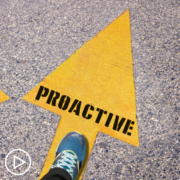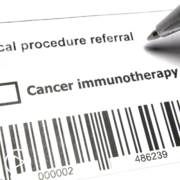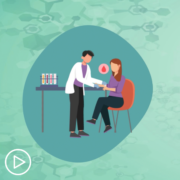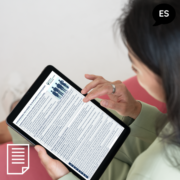How Can Bispecific Antibody Therapy Care Partners Be Proactive?
How Can Bispecific Antibody Therapy Care Partners Be Proactive? from Patient Empowerment Network on Vimeo.
What are some ways for myeloma bispecific antibody therapy care partners to be proactive? Nurse practitioner Alexandra Distaso from Dana-Farber Cancer Institute shares lifestyle modifications, reasons to speak up and ask questions, and advice for care partners to take proactive steps for both the patient care and self-care during bispecific antibody therapy.
Alexandra Distaso, MSN, FNP-BC is on the Multiple Myeloma Nursing Team at Dana-Farber Cancer Institute.
See More from The Care Partner Toolkit: Bispecific Antibodies
Related Resources:

Bispecific Antibody Therapy | What is the Treatment Duration and Response? |

What Is the Role of a Care Partner in Bispecific Antibody Therapy? |
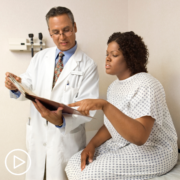
|
Transcript:
Katherine:
What about self-care for the care partner? Why is that so important?
Alexandra:
I feel like this is such a hard thing for people because it always gets put on the back bur ner. And I know a lot of the times it’s like when you’re on an airplane and they say, “Put your oxygen mask on yourself before you put it on anyone around you,” because you can’t help others if you’re running on empty. You really need to take care of yourself.
Make sure you’re not just functioning, that you’re eating and sleeping and hydrating and taking care of all your own personal needs, but also that you’re taking time for you to kind of reflect and have some time to decompress from everything you are trying to do to help your family member or loved one.
Katherine:
Why should care partners speak up and ask questions about how they’re taking care of the patient, what they can do to help the patient and themselves?
Alexandra:
Yeah, I think that these bispecific antibodies are new, and one great thing about them is that overall they are really well-tolerated in general. So, hopefully, it means the patient is feeling pretty good and having a really nice response to their therapy. But if they’re not feeling good, we want you to speak up at home. Again, sometimes patients are the last person that want to tell you there’s a problem because they’re worried about missing their therapy.
And I always tell patients it’s sometimes not safe, if you do have a cough, if you have had a fever, we want to be safe and maybe hold a dose of therapy to address maybe something else that’s going on and avoid further complications another week. So, if you’re noticing something, I always encourage people to speak up and let us know of any concerns they’re seeing at home.
Katherine:
Alexandra, during treatment, are there any lifestyle changes that need to be made? Like diet, for instance?
Alexandra:
No. I mean, a lot of patients definitely want to maximize anything they can do to make themselves feel better and help their myeloma respond. But what we’ve seen is that there’s not one particular diet or cutting out one particular food that’s going to make a long-term or significant impact on any cancer therapy. The best thing that you can do in terms of diet or lifestyle is to try and just maintain a healthy lifestyle to balance all your other medical needs. You want to make sure your blood pressure is in good control.
You want to make sure if you have diabetes, that your blood glucose is in a good range. Because having those things be in good control is going to make your therapy and potential complications more manageable.

